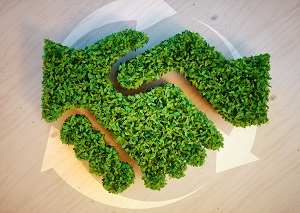
Strategic environmental assessment (SEA) and environmental impact assessment (EIA) are tools for greening economic development at the planning and project levels. Since 2013, UNECE has supported Georgia’s efforts towards establishing full-scale national SEA and EIA systems in accordance with the Convention on Environmental Impact Assessment in a Transboundary Context (Espoo Convention) and its Protocol on SEA. Its technical assistance activities have been funded through the EU “Greening Economies in the Eastern Neighbourhood” (EaP GREEN) programme.
The most recent activities include three capacity-building and training workshops on SEA and EIA, which were organized in Tbilisi from 28 November 2016 to 1 December 2016 by the Ministry of Environment and Natural Resources Protection of Georgia in cooperation with UNECE and the NGO, Georgia’s Environmental Outlook. The first event focused on SEA quality control with a special emphasis on the role of the Ministry of Environment and Natural Resources Protection, and the Ministry of Labour, Health and Social Affairs, as the national authorities that are expected to play a major role in the SEA system according to Georgia’s new draft Environmental Assessment Code. The second and the third workshops, carried out in coordination with an EU project to support Georgia’s approximation to EU law, introduced the relevant governmental institutions and practitioners to the main steps in the SEA and EIA procedures, as stipulated by the draft Environmental Assessment Code.
Tamar Sharashidze, Head of the Environmental Impact Permits Department at the Ministry of Environment and Natural Resources Protection of Georgia, said the workshops had provided a wealth of information and facilitated an extensive discussion about the SEA and EIA processes set out in the Espoo Convention and its Protocol on SEA, including the practical steps and institutional arrangements needed for the application of SEA and EIA in Georgia at the national and regional levels after the adoption of the draft Environmental Assessment Code. Ms. Sharashidze noted that the workshops had significantly contributed to a better understanding of the procedures under the draft national legislative framework, and thus supported efficient introduction of the SEA and EIA schemes in the country.
More information can be found on the UNECE website at: https://www.unece.org/env/eia/about/eap_green.html.